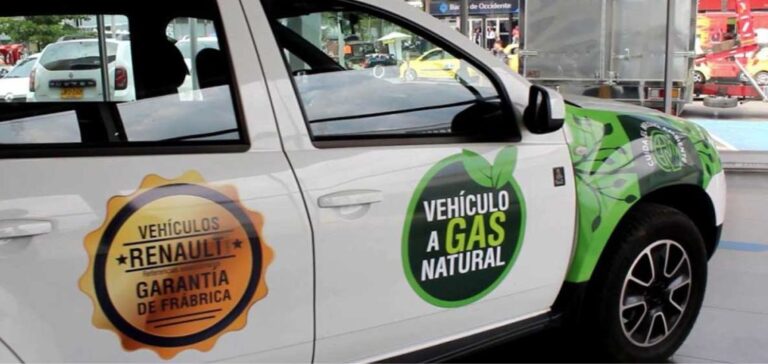Faced with the abolition of gasoline subsidies by Gustavo Petro’s government, thousands of Colombians are converting their vehicles to natural gas, taking advantage of tax breaks. This transition is aimed at easing the financial burden on citizens in the face of rising gasoline prices, from $2.15 to $3.75 per gallon since August 2022. This initiative is in line with broader environmental objectives, marking a significant turning point in national energy policy.
Rising demand for natural gas
According to Luz Stella Murgas, President of Naturgas, demand for fuels derived from natural gas is set to grow by 8% a year until 2030. Last year, conversions of natural gas vehicles rose by 63%, and sales of gas trucks climbed by 12%. These trends underline thegrowing appeal of natural gas as an economical and environmentally-friendly alternative to gasoline and diesel, particularly among commercial vehicle owners and cab drivers.
Financial and environmental incentives
Switching to natural gas saves Colombians around 50% on their monthly fuel costs, according to Naturgas. This economic advantage is complemented by the government’s efforts to reduce carbon emissions, with a 19% sales tax exemption for natural gas vehicles. Additional incentives include significant rebates for scrapping old diesel trucks and low-interest loans for purchasing natural gas vehicles, underlining a comprehensive approach to promoting cleaner transport solutions.
Impact on the transport sector
The transport sector, responsible for 12% of Colombia’s carbon emissions, will benefit greatly from the switch to natural gas and electricity. With only 5% of the country’s gas consumption currently used for transportation, there is considerable potential for growth in this area. This transition not only supports Colombia’s emissions reduction targets, but also represents an immediate opportunity for positive impact on environmental sustainability.
As Colombia faces the prospect of increased gas imports due to falling production rates, there is optimism for self-sufficiency. If offshore and onshore projects expand and proven reserves are exploited, Colombia could produce 1.2 Bcf/d by 2030, potentially eliminating the need for imports. This perspective underlines the importance of strategic investment in the country’s energy sector to meet future demands and environmental commitments.





















